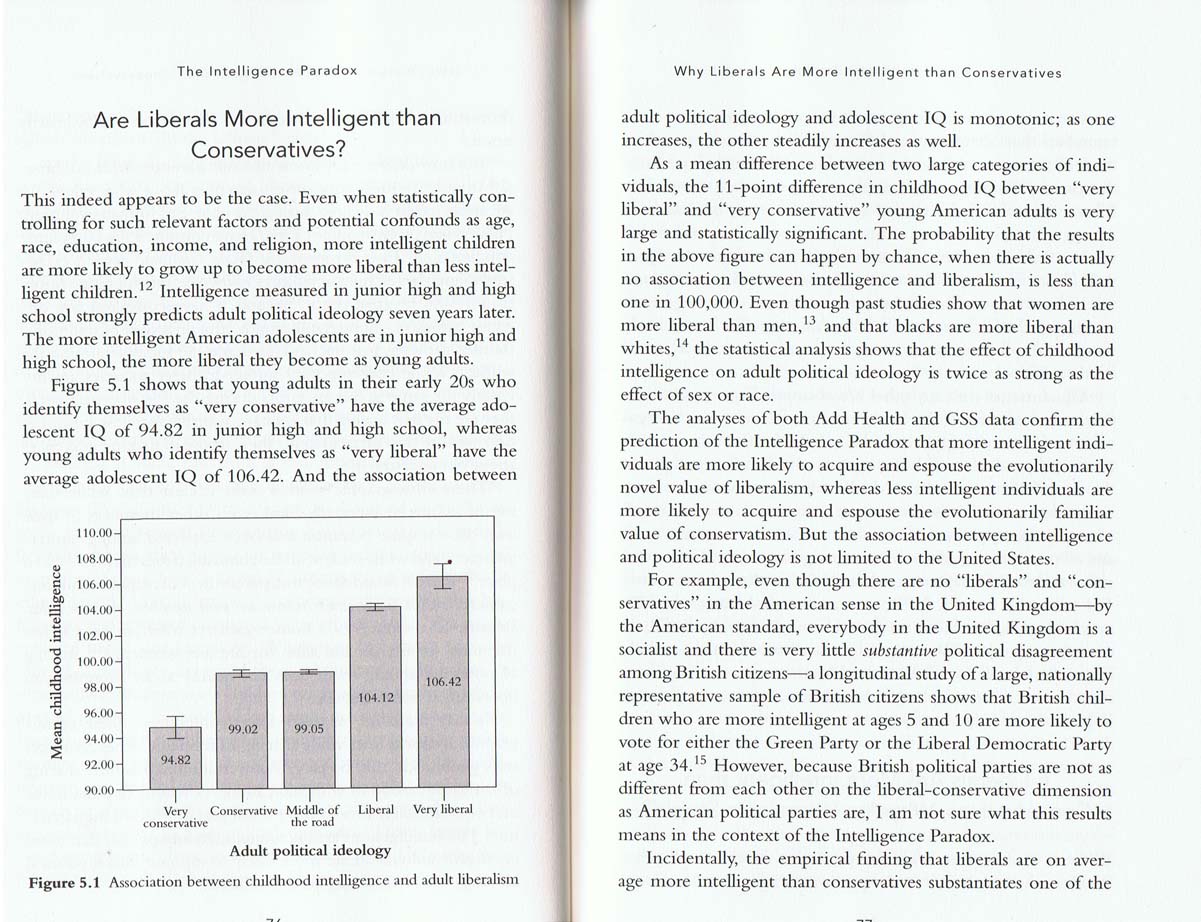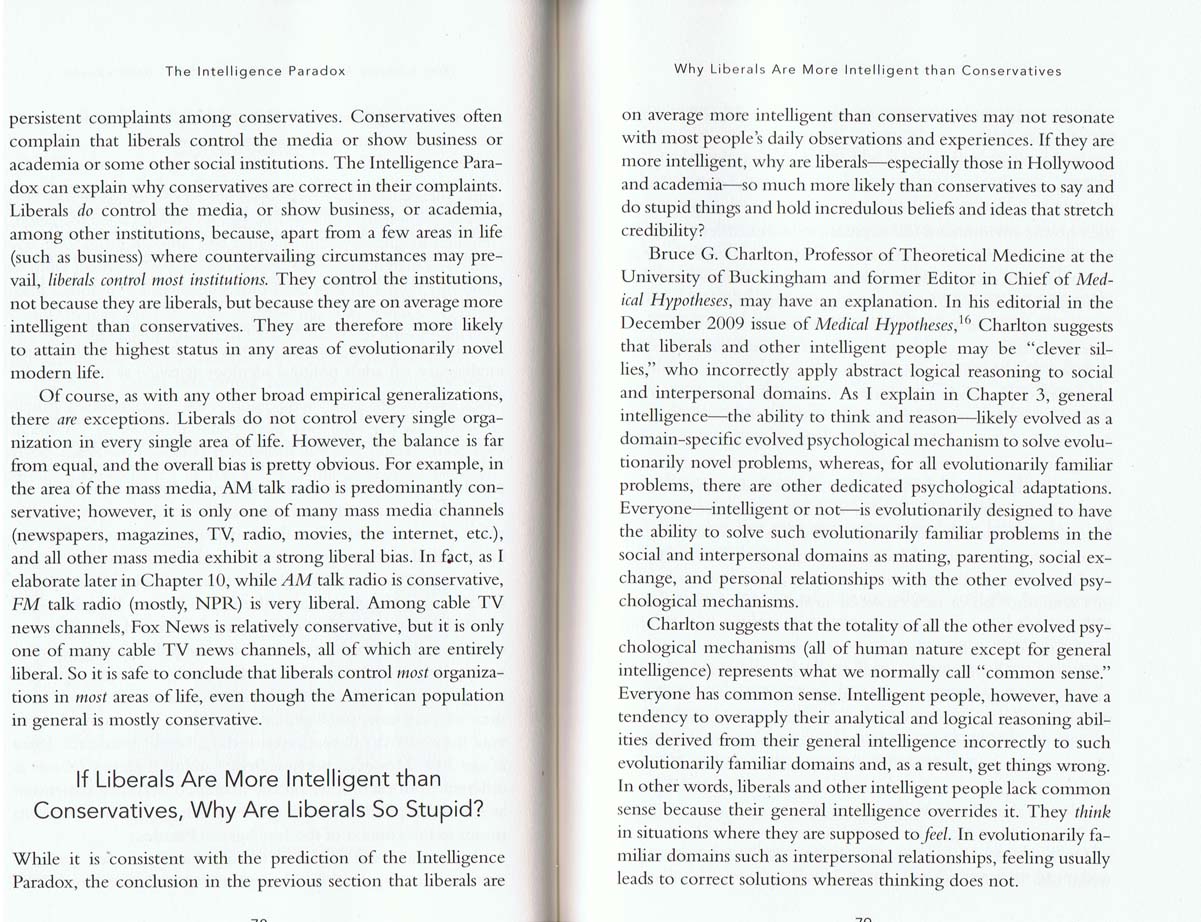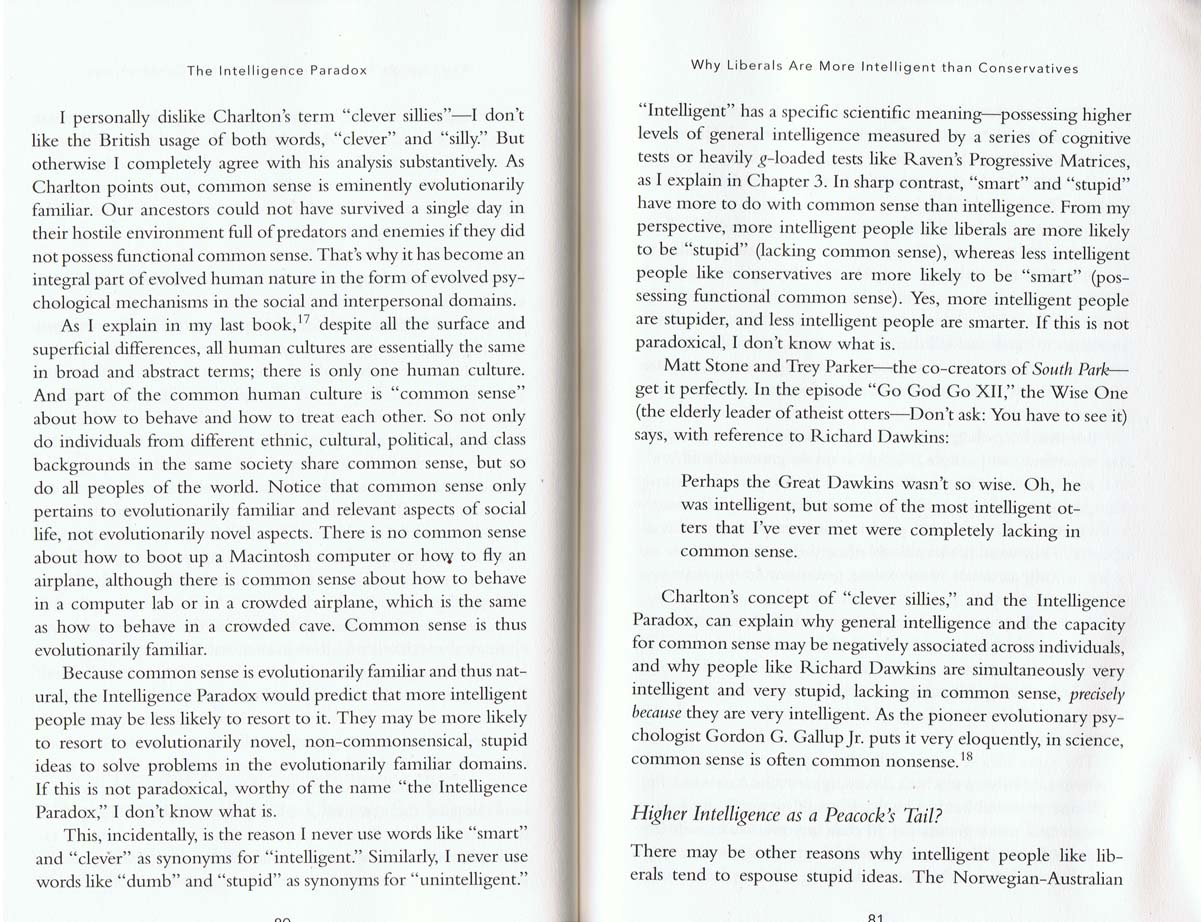The Intelligence Paradox
Satochi Kanazawa
Two propositions - The Savannah Principle and the Intelligence Paradox. The first refers to fact that humans spent hundreds of thousands of generations on the African savannah. During this time, those who didn't learn common sense tactics to deal with the everyday things (finding yr way back to camp, having a body which hoarded calories) and the occasional novel experience (a drought meaning had to find and try new food) didn't survive to reproduce. Since evo works slowly, we are still hostage to all the adaptations which worked for hunter-gatherers but aren't so helpful in modern urban society.
The second refers to author's idea that smart people sometimes do silly things, mainly because they overthink simple tasks which should be left to common sense.
More books on Mind
Porn:difference between way men and women use porn is due to fact that our brains can't tell difference between real and virtual sex objects (as shown by fact that men can get an erection looking at porn, even though there is no chance of sex). And it's bc of Savannah Principle - if you saw a naked hottie giving you the come-on on the savannah, it was always time to get ready for sex. So men enjoy porn bc brain thinks sex coming, women avoid porn for the same reason - brain interprets it as sex with a stranger, which is a high risk activity for a woman.
More books on Sex
Heredity and intelligence: some things have a heredity measure of 1.0 - they are totally dependent on yr genes. Huntington's disease, hair color, blood type are all 1.0 - the environment has no influence at all. There are no human traits which have a factor of 0.0 - everything has some genetic component. most personality traits are 0.5 - genes and environment about 50/50. Intelligence is highly genetic - there is very little you can do to alter it. Same as height - tall parents have all kids. In both cases, severe malnutrition an stunt both height and intelligence, but only at extremes.
The vast majority of our ancestors were hunter-gatherers. About 500 generations ago, they became farmers. Up until our grandfather's time, most people were farmers. Up to our parents' time, most people were factory workers. Now most of us conduct at least part of our trade and business on computers, a device which did not exist in our parent's time.
Up until very modern times, there was no evolutionary advantage to having above average intelligence. As long as someone in the tribe cd deal with the occasional novel event (bushfire, drought, flood) there was no demand for thinkers.
Today there is continual demand for smart people, but only becomes useful when dealing with novel problems.
Some definitions - 'Very bright'=IQ>125 approx 5% of US population; 'Bright'=IQ 110 - 125 approx 20% of US population; 'Normal'=IQ 90 - 110 approx 50% of US population; 'Dull'=IQ 75 - 90 approx 20% of US population; 'Very dull'=IQ <75 approx 5% of US population.
Liberals are smarter than conservatives. In USA, conservatives are happy with inequal outcomes as long as there is equality of opportunity (egalitarianism). Liberals believe in equality of outcomes, and are happy with any means to achieve this.



Author argues that this is evolutionarily novel - or ancestors were egalitarians. Humans look after their kin, and are not altruistic outside of their 150 strong extended family group.
More books on Politics
The average IQ of a society is the strongest predictor of religiosity - every IQ point increase decreases the percentage of the population who believe in God by 1.2%.
More books on Religion
Two bits of evidence suggests that monogamy a novel idea. In animal species, the more monogamous the more equal in size are the male and female, and v.v. Strictly monogamous gibbons are almost exactly the same size. At the other end of the scale, elephant seals, which control a harem of about 50 females, are nearly 8 times the weight of females. Secondly, primitive human societies are overwhelmingly (84%) polygymous.
More books on Marriage
Classic Clark-Hatfield study 1989 where attractive young people accosted members of opposite sex and asked them "Would you go out with me tonight?" "Would you come over to my apartment tonight?" or "Would you have sex with me tonight?" Expt run twice, in 1979 and 1982. Absolutely none of the women approached by handsome strange man agreed to have sex with him. But 75% of the men agreed to have sex with the strange woman, but only 50% of men wanted to go on a date with her. Most of the rest of the men apologized for not being available that evening; in contrast, most of the women got angry at being asked the question by the guy.
When a man propositions a woman, she can say 'yes' or 'no'. But when a woman propositions a man, the answer is either 'yes' or 'yes please'. Fat women have just as much sex as normal ones - the men might not be saying 'yes please', but they are saying 'yes'.
Books by Title
Books by Author
Books by Topic